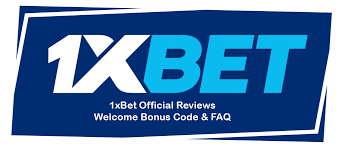Essential Guide to sportsbook betting Strategies, Odds and Smart Play

sportsbook betting download 1xbet for pc
Sportsbook betting has evolved from a pastime for devoted fans into a sophisticated industry that blends data analytics, psychological insight, and disciplined money management. Whether you are a casual bettor looking to make smarter choices on weekends or a more serious player building a long-term edge, understanding the fundamentals and adopting consistent habits will improve your results and enjoyment.
At its core, sportsbook betting is about identifying value: placing wagers where the probability of an outcome is higher than the implied probability reflected by the odds. Bookmakers set lines to balance action and protect their margins, not to predict exact outcomes. That means disciplined bettors find opportunities where public sentiment, recent noise, or inefficient pricing creates a gap between true probability and posted odds.
There are several common bet types you should know:
– Moneyline: A straight pick on which team or competitor will win. Simple but often lower margin when favorites are involved.
– Point spread: A handicap is applied to the favorite to level the perceived difference, making both sides attractive for wagering.
– Totals (Over/Under): A bet on the combined score in a match being above or below a set number.

– Futures: Long-term bets on outcomes like league champions or season awards, offering bigger payouts but requiring patience and capital.
– Props: Specialized bets on events within a contest, such as player stats or in-game occurrences. They can offer value when markets are less efficient.
– Parlays and Accumulators: Combining multiple selections into one wager multiplying potential returns but increasing volatility and risk.
Understanding odds formats (decimal, fractional, American) and how to convert them into implied probabilities is critical. Implied probability = 1 / decimal odds. If the bookmaker’s implied probability for a team is 55% but your analysis suggests their true chance is 62%, that represents value. Tracking edges of a few percent consistently is how long-term profitability is achieved.
Bankroll management is the most important discipline for longevity. Establish a dedicated betting bankroll separate from everyday finances. Determine flat stakes or use a percentage staking plan (commonly 1–5% per wager depending on risk tolerance). Flat staking reduces variance and prevents emotional, chase-driven decisions after losses. Keep a record of every bet: stake, odds, market, rationale, and result. This creates data for objective review and helps refine strategies.
Market selection matters. Major sports markets like football, basketball, and soccer are efficient due to large volumes of betting and sophisticated models. Niche markets, lower leagues, or alternative markets (player props, live in-play lines) often contain inefficiencies where prepared bettors can exploit informational or analytical edges. Specializing in a few markets allows deeper expertise and better prediction models.
Research and preparation should combine quantitative and qualitative insights. Analyze historical trends, head-to-head records, situational factors (injuries, travel, weather, motivation), and line movement. Line movement can signal sharp money or large public interest; learning to read it in context is useful. Incorporate model-based probabilities but be willing to override when strong situational evidence exists.

Live, or in-play, betting is a fast-growing segment. It offers chances to react to unfolding events and catch odds before they adjust fully. However, live markets are fast and require discipline, quick decision-making, and a clear plan. Avoid impulsive bets based solely on excitement or a single moment in a match. Use live betting mainly to exploit momentary inefficiencies supported by a reasoned view of game flow.
Sportsbook selection is another practical consideration. Compare odds, limits, and market coverage across reputable operators. Shopping for better odds — using multiple sportsbooks — increases value and reduces broken-parlay frustration. Look for fair terms on promotions, reasonable withdrawal procedures, and solid customer support. Consider sites with useful tools like cash-out options, bet histories, and fast in-play interfaces.
Promotions and bonuses can add value but read terms carefully. Wagering requirements, restricted markets, and minimum odds clauses can reduce the apparent benefit. Treat bonuses as supplementary, not a main strategy.
Psychology plays a central role in betting outcomes. Cognitive biases such as recency bias, confirmation bias, and overconfidence often lead bettors to misjudge value. Establish rules to counteract these tendencies: set pre-defined staking limits, require evidence for any deviation from your model, and avoid betting under emotional stress. Regular breaks and objective reviews of your history will help maintain discipline.
Responsible gambling is non-negotiable. Only wager what you can afford to lose. Set time and money limits, use self-exclusion tools if necessary, and seek help if betting habits become harmful. Many jurisdictions offer resources and support networks for gambling-related issues; keep those in mind before problems escalate.
For those looking to develop an analytical edge, consider building simple predictive models using historical data and key variables. Start with transparent metrics, test on out-of-sample data, and iterate. Even modest improvements over bookmaker-implied probabilities can compound into meaningful returns given enough volume and discipline.
Finally, view sportsbook betting as a craft that combines methodical research, prudent money management, and emotional control. Short-term variance is inevitable, but consistent application of sound principles increases the probability of long-term success. Whether you aim to enhance your enjoyment of sports or pursue steady returns, treating betting as a process — not a shortcut to easy money — is the surest path to sustainable results.




暂无评论,你要说点什么吗?